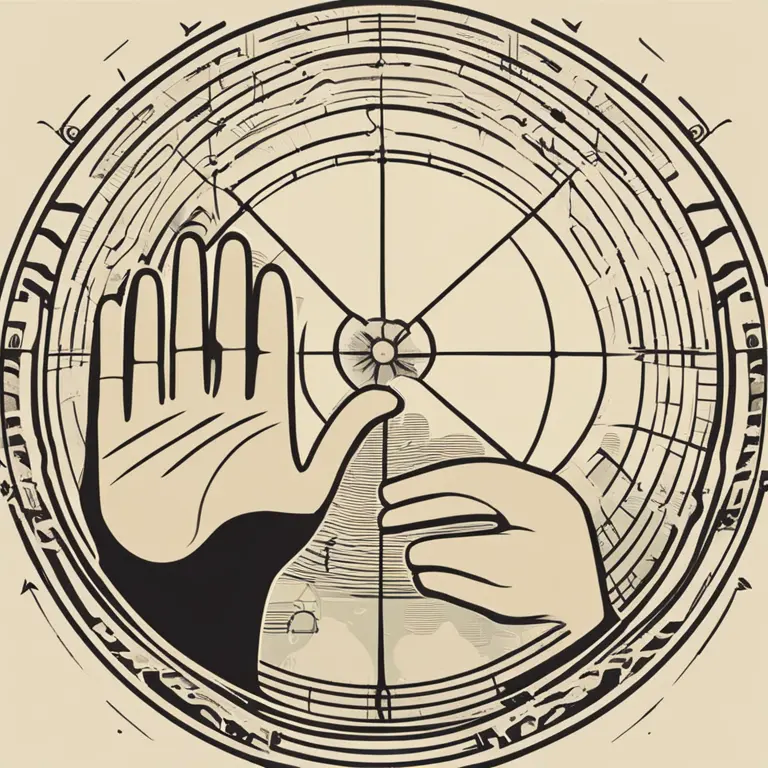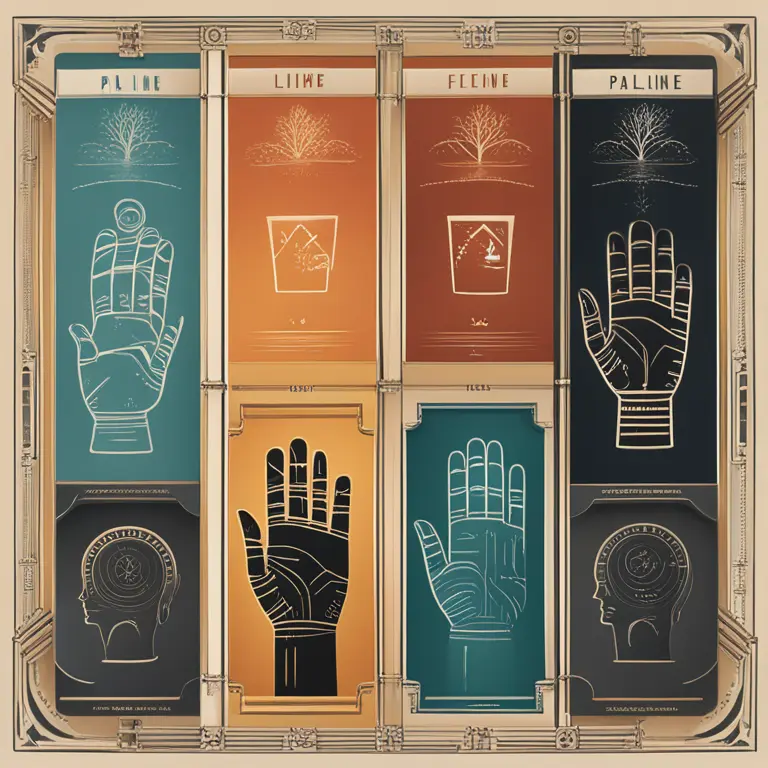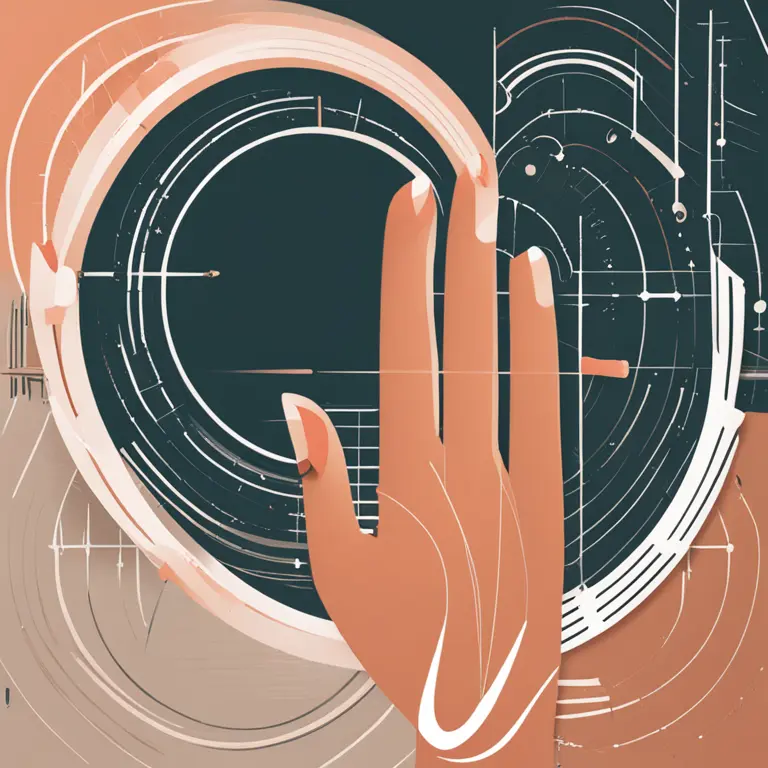
Locating the Lifeline in Palm Reading
Discover the significance of the lifeline in palmistry and learn where to find it on your palm for insights into vitality and life changes.
article by Nora Pennington
A Brief Introduction to Palmistry
In the mystical world of palmistry, the lines on your palms are more than mere creases. They are seen as pathways to understanding an individual's life path. Originating from ancient practices, palmistry has evolved over the centuries to incorporate elements from different cultures. As of 2024, palmistry remains a compelling tool for those seeking insight into their physical vitality, emotional wellbeing, and life changes. The lifeline is one of the primary lines that practitioners and enthusiasts seek to interpret.

Identifying Your Lifeline
The lifeline is one of the most recognized lines in palmistry, and it traditionally begins near the thumb, arching down towards the wrist. It generally runs in a curve around the mount of Venus, which is the fleshy area beneath the thumb that represents love and passion. Contrary to popular belief, the length and depth of the lifeline do not necessarily predict the duration of one's life but rather the quality and robustness of one's life journey.

Lifeline Variations and Meanings
Various lifeline shapes and depths hold different meanings in palmistry. A deep, distinct lifeline often suggests a person with robust health and energy, while a faint or fragmented line may point to a more sensitive constitution or periods of instability. Breaks in the line can symbolize life-altering events or significant transitions. Furthermore, an analysis of the lifeline in conjunction with other lines and mounts enriches the understanding of an individual's experiences and potential coping mechanisms.

The Evolution of Lifeline Interpretations
In the contemporary practice of palmistry, the lifeline's interpretations have evolved far beyond superstition and are often approached with a more psychological angle. In 2024, palm readers continue to integrate new psychological insights and traditional interpretations to provide more holistic readings. People are now more open to these interpretations as symbolic narratives of one's life rather than deterministic prophecies.

The Lifeline in Relation to Other Lines
For a more comprehensive analysis, palmists observe the lifeline's interaction with other important lines on the palm, like the head line and the heart line. These interactions can give insight into how a person manages their intellect and emotions throughout their life. For instance, if the lifeline and head line are joined at the beginning, it can indicate a cautious nature. Cross-referencing these lines can allow for a nuanced view of a person’s disposition and potential life paths.
Modern Applications of Lifeline Readings
In today's fast-paced world, individuals look for various tools to gain self-awareness and prepare for challenges, and palmistry, with its rich symbolism, remains a sought-after method. Although the skepticism surrounding palmistry persists, the lifeline continues to intrigue because of its personal nature and its capacity to reflect an individual’s journey and resilience.
Learning to Read Your Lifeline
If curiosity has been sparked and you are eager to explore the secrets held within your own palms, there are resources available that can guide beginners through the basics of locating and interpreting their lifeline. Remember that palmistry is a personal and subjective practice, and your readings can be as unique as you are. The lifeline is just the starting point of a rich and complex narrative written on the palms of your hands.
Published: 1/11/2024
Modified: 1/12/2024
More predictions
Come back here soon to learn more about yourself and your future


The Possibility of Palmistry in Cancer Detection
Examining the claims that palmistry holds any potential in identifying the risk of cancer: a deep dive into the world of mysticism and medicine.


The Essence of Palmistry: Interpreting Lines and Shapes
Delve into the world of palmistry to discover the meanings behind the lines and shapes etched into the palms of your hands.


The Ancient Art of Vedic Palmistry
Discover the ancient art of Vedic Palmistry and its practice in the modern era, revealing the secrets held within the lines of the hand.